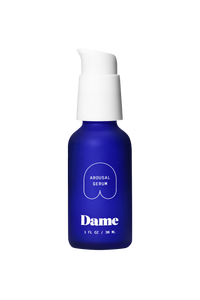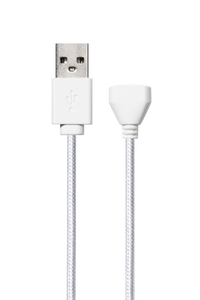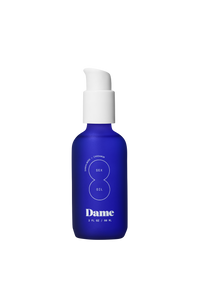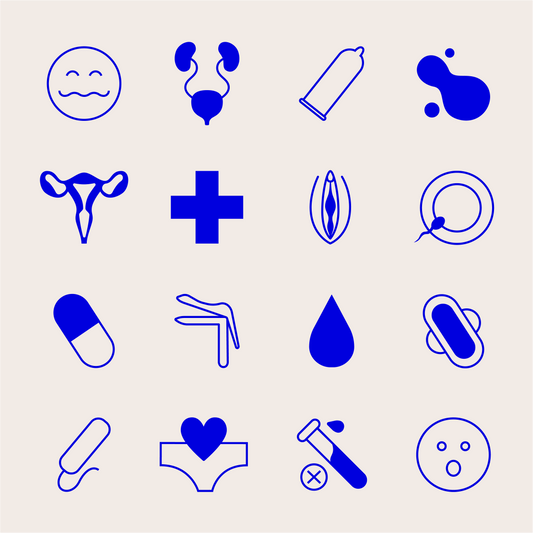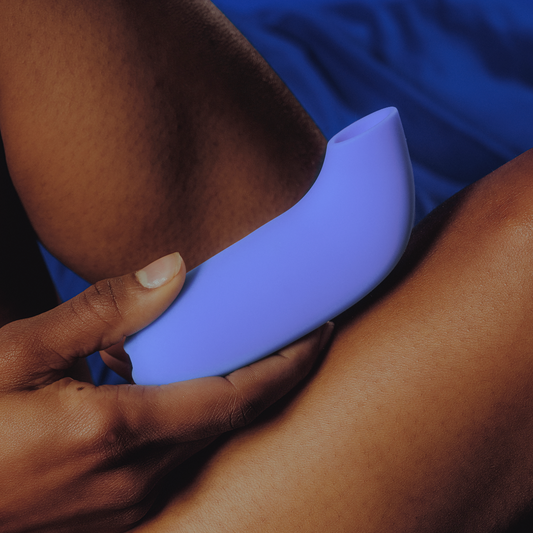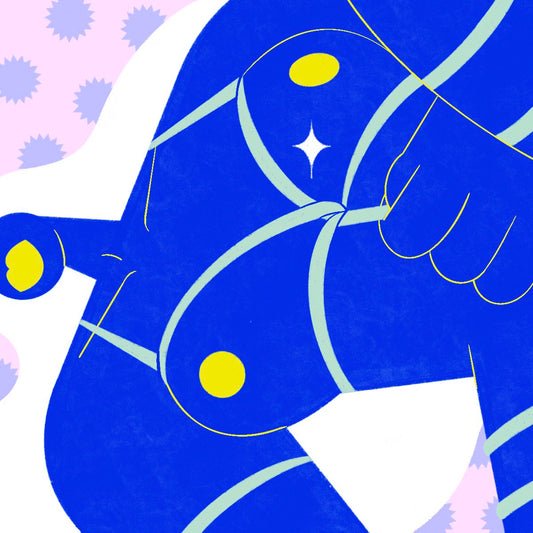Alexandra Fine, Credentialed Sexologist, M. Psych | Written by Dame
"High" Sex Drive | What Determines a Person’s Sex Drive? | When Is a Sex Drive Too High? | Is My Sex Drive Too High? | How Is Hypersexuality Treated? | High Sex Drive and Hypersexuality
It’s certainly possible to have too much of a good thing.
- Too much alcohol can get you drunk in the short term, subject you to DUI charges on your way home, and cause cirrhosis of the liver in the long run.
- Too much rich food? Stomach ache in the short term, food sensitivities in the medium term, and obesity and diabetes in the long run.
- Too much money? The arrival of new-found friends who simply want a handout in the short term, big tax bills down the road – and there must be a long-term issue, too. We just can’t think of it at the moment.
But what about sex? Is there such a thing as too much sex?
It really depends. If you’re in good shape, you have willing partner(s), and it doesn’t become an obsession, enjoy.
There are times, however, when having a high sex drive can become a big problem in a personal life or in a relationship.
And just as importantly, a libido that all of a sudden skyrockets out of nowhere may indicate a deeper health or wellness issue.
Let’s investigate.
When Is A Sex Drive Considered “High?”
That’s a good question. Here’s another one: when is a house too big?
OK, you’re right. They’re both trick questions.
A five-bedroom, three-bathroom house may be perfect for a family with ten children, but it’s probably way too much house for a young couple on a budget who can barely afford their own home.
And just as there’s no “right size” for a house, there’s no “normal” when it comes to libido.
That’s because everyone’s different. Some people like chocolate and others prefer strawberry; some enjoy country music and others are rap fans; some people want (or in their view, need) a lot of sex, but others are just happy with once a week, once a month, or twice a year. Some don’t even want sex at all.
We can look at statistics to find benchmarks. A major survey published in the Archives of Sexual Behavior found that American adults, on average, have sex once per week, with that frequency much higher for those in their 20s (closer to twice per week) and much lower for those in their 60s (less than twice a month). A similar study from the journal Social Psychological and Personality Science came up with largely the same results.
Interestingly, though, those who had sex more than once a week didn’t report being any happier or more satisfied with their sex life than the once-a-week crowd – which would imply that most people don’t have more sex in a search for more pleasure. Some simply have a naturally-higher sex drive than others, which is exactly what anecdotal reports from sexual therapists and sexologists have said for decades.
The bottom line: researchers and medical professionals have been unable to determine what a normal sex drive might be. The obvious answer appears to be the correct one: humans all have different libidos. There’s no magic level above which a person’s desire for sexual activity is automatically too high.
That poses a difficult issue. If a very high sex drive can potentially cause issues, but some people naturally have a high level of sexual desire, how can you know if your sex drive is in the danger zone?
The first step is figuring out what your personal “baseline” is. That will allow you to differentiate between normal fluctuations and problematic increases.
What Determines a Person’s Sex Drive?
There’s no single factor responsible for a person’s sexual drive. Several are involved in the mix.
Health and Wellness
When you’re in good shape and getting enough sleep, your libido will usually be at its highest level.
But when you’re tired – or exhausted – it’s only natural that you’d have a lower sex drive. There are literally dozens of illnesses and medical conditions that can cause fatigue, ranging from inflammatory bowel disease and fibromyalgia, to COVID and cancer. There are some very common diseases on the list, too, like diabetes, high blood pressure and heart disease, not to mention chronic fatigue syndrome.
The side effects of medications may include lower libido as well. Topping the list are many classes of antidepressants, with SSRIs the most common culprit. Steroids, opioids, anti-anxiety meds, anticonvulsants, blood pressure meds like beta blockers and statins, and cancer treatments can all cause a lower sex drive.
Yes, we know – those all can lower libido, but what does that have to do with a high sex drive? It’s simple. Effectively treat the medical conditions, or stop (or lower the dosage) of any of those medications, and poof! Your libido can “miraculously” return to your baseline level and it will seem as though you suddenly have a “high sex drive.”
The same goes for mental health problems. Anxiety and stress levels (particularly stress caused by relationship issues), depression, issues like poor body image, sexual shame or low self-esteem, and sexual dysfunction (particularly erectile dysfunction) can all contribute to low libido – and when they’re treated, libido can return with a rush. There are few diagnosable mental health issues that directly affect sex drive; we’ll look at those in a separate section.
The “wellness” part of “health and wellness” should also be considered when thinking about your sex drive. Lack of proper exercise and poor diet, smoking and overuse of alcohol and drugs, even not getting enough sleep can cause a lower libido. Resolving those issues can restore it.
Are there health issues that, all by themselves, can be the cause of an “abnormally” high libido? A few. Dementia and epilepsy may damage parts of the brain responsible for controlling sexual impulses, and medications known as “dopamine agonists” used to treat conditions like Parkinson’s disease may affect also impulse control.
Hormones
We all have so-called “sex hormones.”
Testosterone, estrogen and progesterone all play roles in determining the genders assigned at birth, and in the development of sex organs and body characteristics. As you probably know, testosterone is the major player in penis-havers. Estrogen and progesterone play more important roles in vulva-havers.
Testosterone is largely responsible for sex drive in those with penises. They have their highest levels of the hormone during puberty and up until about age 30; testosterone levels – and libido – fall gradually after that. So penis owners will naturally have a higher sex drive when they’re younger than when they’re older. Can that be called a “high sex drive?” Not really; it’s usually just at the higher end of what “normal” for them.
Levels of estrogen and progesterone rise and fall every month during vulva owners’ menstrual cycles. Estrogen levels are at their highest just before and during ovulation, leading to a higher sex drive. They’re at their lowest during menstruation, when sexual desire also reaches its lowest monthly level.
Hormonal contraception methods smooth out those variations, and estrogen levels (and sexual interest) take a huge drop when menopause arrives (the reason for vaginal dryness, too). But again, none of those highs and lows define a problematically high or low sex drive. They simply represent the high and low ends of a person’s normal level of sexual desire, and gynecology specialists (or “women’s health” professionals) may be able to help hormone issues that cause a wild swing in sex drive.
Can having too much testosterone or estrogen produce a high sex drive that can cause issues? Experts aren’t positive, but most don’t think so. It’s believed more likely that high levels of mood-regulating neurotransmitters like serotonin, dopamine and norepinephrine could be the real culprits, because they can cause chemical imbalances in the brain.
Low estrogen or testosterone (low-t) levels, which in some cases are treated with hormone therapy, can be responsible for a low sex drive. But high hormone levels probably don’t cause a problematically high libido.
Bottom line: before you seek treatment for a high libido that you think isn’t “normal,” first realize that your sex drive may just be responding to changes in age or your menstrual cycle.
Genetics
This possible cause of a high sex drive is still controversial, but Israeli researchers have reported that a gene called the dopamine D4 receptor may play a role in libido. They found that study participants with one form of that gene were more interested in sex than those with different forms. The results have been replicated in other studies, but no firm conclusions have yet been drawn.
When Is a Sex Drive Too High?
If a high sex drive interferes with a person’s normal daily activities, that’s when it becomes a problem.
That doesn’t necessarily mean that frequent masturbation and sexual fantasies, or all-day (and all-night) partying with consensual sexual partners, are issues all by themselves. Some people can successfully juggle those sexual experiences and their everyday life without endangering their job and relationships, or their mental and sexual health.
Problems arise, however, when a sex life surges out of control. If sexual urges, behaviors and fantasies can’t be managed and controlled, if they cause psychological distress or lead to possible or actual physical harm, or they cause problems handling everyday life – there are names for that: compulsive sexual behavior, sex addiction, or hypersexuality.
Is My Sex Drive Too High?
Compulsive sexual behavior caused by an unnaturally-high libido often goes undiagnosed until it leads to relationship issues or family problems, interferes with normal sexual arousal or sexual function, causes serious problems at work, or leads to physical issues (like the contracting of STDs) or mental issues (like depression).
There’s no way for sex therapists and mental health professionals to rigorously distinguish between a vastly-increased libido and hypersexuality.
Instead, they have to rely on anecdotal observations of a person’s behavior in order to determine if sexual behavior has become compulsive.
They’ll ask questions like these:
- Does the patient have regular and intense sexual urges, behaviors and fantasies?
- Are the patient’s sexual behaviors preventing them from fulfilling their daily obligations?
- Is the patient unable to control those sexual behaviors, despite trying repeatedly?
- Do the behaviors regularly cause mental distress or feelings of remorse?
- Does the patient regularly lie to cover up their sexual behaviors?
- Do aspects of the patient’s sex life cause or threaten emotional or physical harm to themselves or others?
- Are there signs of related issues like depression and anxiety?
“Yes” responses to some or all of those questions indicates the likelihood of compulsive sexual behavior.
How Is Hypersexuality Treated?
Since it’s actually a mental disorder, psychiatrists, psychologists or certified sex therapists are the best options for medical advice about, and treatment of, compulsive sexual behavior.
International mental health organizations have only recognized hypersexuality as a disorder for about ten years. And surprisingly, the authoritative U.S. source for mental health professionals (the Diagnostic and Statistic Manual of Mental Disorders, or DSM-5) still doesn’t recognize hypersexuality as an actual mental illness. The DSM-5 does recognize several low libido disorders (categorized differently for “men and women,” female sexual interest/arousal disorder and male hypoactive sexual desire disorder) – but when it comes to high libido disorders, professionals are largely on their own.
Most treat the problem with cognitive or behavioral therapy aimed at changing patterns that may contribute to compulsive sexual activities. Some also take aim at the depression and/or stress that often accompanies hypersexuality, treating it with talk therapy and possibly antidepressants. They also work with patients to identify triggers and try to develop alternative, less-harmful behaviors.
12-step programs like Sex Addicts Anonymous, and inpatient programs designed to theoretically treat sex addition, are also possible options for those dealing with hypersexuality.
High Sex Drive and Hypersexuality: Not the Same
This lengthy look at what high libido is – and isn’t – hopefully provides important context to a phrase that’s often thrown around without much thought.
The level of a person’s sex drive, whether it’s high, low or “average,” isn’t a problem.
It may cause a problem, if it’s a mismatch with a long-term partner’s libido. If one partner wants lots of sex and the other doesn’t, they’ll have to find a resolution. That could be an end to the relationship, or for most partners, couples or sex therapy.
It may also cause a problem, if someone is unhappy with how often they need (or want) sex and it causes them some level of mental distress.
But in those cases, having a high sex drive isn’t the problem. A combination of physical, mental and possibly genetic factors determine each individual’s libido; some have a high sex drive, others have a low sex drive, and most are somewhere in the middle.
The problem is when sexual desire is so high that it causes significant issues in a person’s life. That’s when intervention, usually by a mental health professional, is called for.

